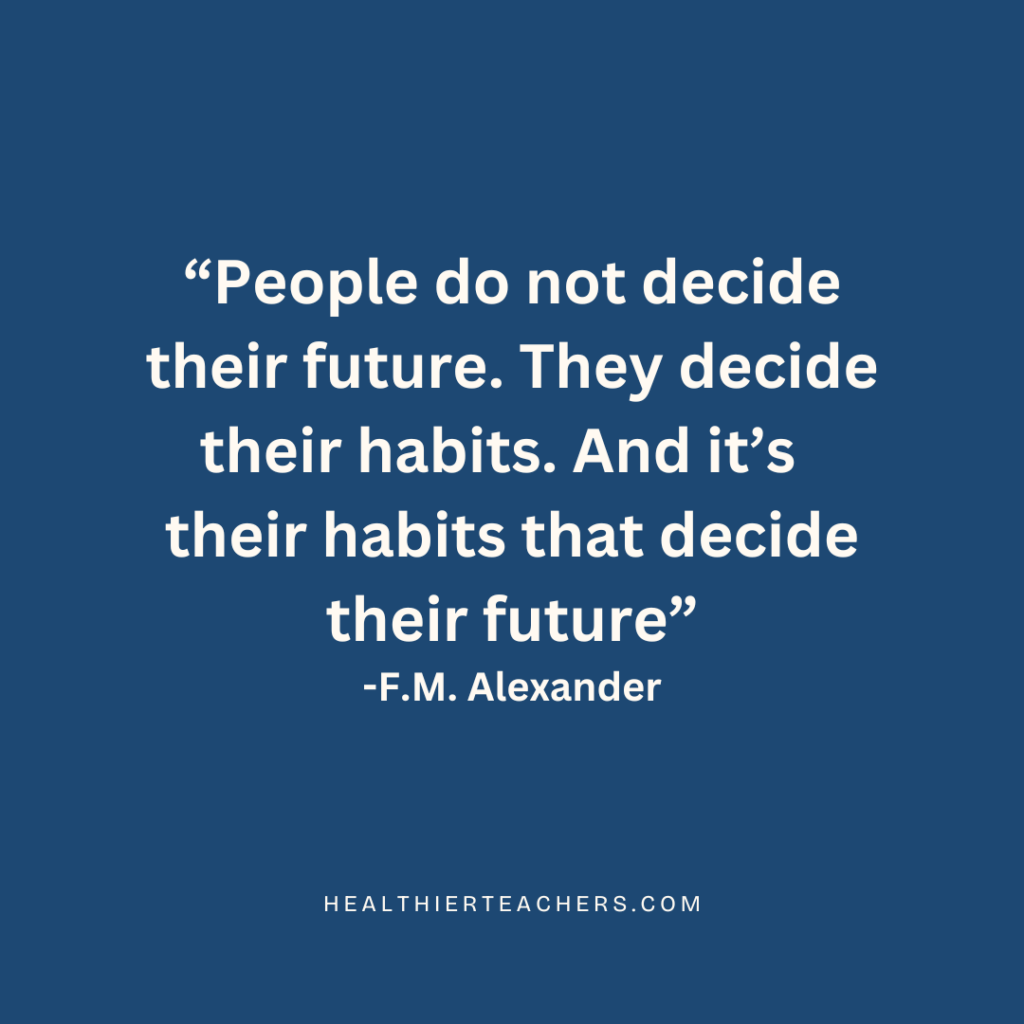The other day, I got in the car to head to a hair appointment for some much-needed root coverage, but halfway there, I realized I was driving to my daughter’s school instead of my appointment. I was completely on autopilot, and my body was just taking me on the normal routine that I typically followed at that time of day. Studies tell us that 40% of what we do regularly is a habit. Our brains love patterns and routines, this is why developing new habits can be so hard. It’s not you, it’s science! Some studies say that change takes 21 days while others day 63 days, based on each individual. This goes for habits we want to keep and habits we would like to change.
- Step 1: Identify the habit: Pay attention to triggers and what drives your actions. For example, do you notice you tend to eat sweets at night in front of the TV at the end of the day as a reward? Are you stress-eating when you get home from school or staying up at night doom-scrolling after fighting to get the kids to bed? Pay attention to how you feel in those situations, and identify the emotions or environment that is driving the behavior. You can’t change what you don’t know.
- Step 2: Replace the habit with something else: For example, when you feel bored, sad, overwhelmed, or lonely, instead of diving into the ice cream or pouring a gigantic glass of wine, disrupt the pattern by calling a friend, going for a walk, listening to a podcast, or taking deep breaths. Going cold turkey to stop any behavior can be tough, putting a desired behavior in it’s place will take time, but will eventually become your new normal.
- Step 3: Identify your reward or payoff and practice the new behavior. You have successfully replaced the “stress snacking” in the pantry after school with a walk outside with your neighbor. Continue to include this activity in your schedule and mark it on your calendar until it becomes a reflex. Your reward could be some new walking shoes and the excitement of having time to yourself before launching into the evening routine.
Whatever habit you choose, don’t try to add more than 1 new behavior a week. There are 52 weeks in the year, giving you 52 new habits to add!




